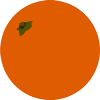spring 2017
Table of Contents
Return to Home Page
Red Sarongs![]() Clementine
Clementine![]() Chelsea Comeau
Chelsea Comeau
A Coke and a KitKat![]() Spenser Smith
Spenser Smith
Singing in Dark Times![]() Bhaswati Ghosh
Bhaswati Ghosh
The Lady or the Tiger? Michelle Brooks
Romeo, Romeo, WTF?![]() P.C. Vandall
P.C. Vandall
Dear Miss Parker![]() Dear Mama
Dear Mama![]() Chelene Knight
Chelene Knight
box cars paper plates annie ross
Prayer For Our Past Selves![]() Esther McPhee
Esther McPhee
We Could Have Called Him Joe, We Didn't![]() Juliane Okot Bitek
Juliane Okot Bitek
from Electric Garden![]() Amanda Earl
Amanda Earl
Constantly Looking, Admitting Nothing![]() Paul Douglas McNeill II
Paul Douglas McNeill II
First Loves in Brevoort Park![]() Body Analysis
Body Analysis![]() Erin Hiebert
Erin Hiebert
Inside My House![]() Gleaning Stones
Gleaning Stones![]() Onjana Yawnghwe
Onjana Yawnghwe
from Glossary of Musical Terms rob mclennan
Aztlan Travels Emiliano Sepulveda
Dear Mama
I would decorate corpses in a polished part of the earth.
I did not become a mother in that house.
Its openings: three windows, holes in its roof, branches
of a coconut tree sealed the doom of children.
I slept; the dawn came; I went to work; the dusk fell.
I roasted coffee beans, pounded them
into a coarse powder; my taste buds
flung into the atmosphere. Small eruptions inside
her heart bought garments: his one old pair
of khaki pants, his old shirt of some kind of cotton,
plus a hand of bananas
I cut.
Wooden slats were tilted,
half measured three inches across the floor.
The pattern of shading and light
fully clothed a woman—
her breasts, a kerosene lamp,
white enamel basins, syringes
on a mahogany table.
When you don’t want to think too much
say nothing audible.
You may not live to see the night black.
In my room, sound of boots on the cobblestones—
house guarding the governor.
I could easily cut off his head.
Did he knock at the door,
perhaps he wore a blue shirt—
the shade of blue that the sea became at midday.
His colour-worn shoes bathed a scent
no man ever could afford.
Hair on my head, I wrapped.
I did not look like a woman.
I would eat fig leaves wrapped
in a knapsack made out of cloth buckets
filled with black
sand. Filled the holes with water,
a vault made of each night in my house—
trickling out. I came to myself, this fear.
My face in any surface shallow—
banks of the river to love
were beyond me. I could cause demise with complete calm.
I refused to become this... refusal.
I would never become a mother.
I would bear children from between my legs.
They would hang like fruit from a vine.
In the morning, at noon, I would eat them,
swallowing them whole. They would not live.
The sweet voice of its bottom would rest
their bodies with skins thinly crusted—
thirst a thirst that could condemn them.
I would throw them from a great
height, healing in a way they were broken.
Look up. Find myself of my past: a horizon
from which I was receding. When I did not
grow insane, I did not grow tired: the house
held the blackest of darkness.
I did not want the sight of the rest
of my life. I walked past the village,
rented a house. I had four dresses,
two pairs of shoes, given to me by my
father—it was not nothing! —a road built
between job sifting, the sand, and ten hours
at the end of a small brown envelope.
In this house, I spent all my time bedding
a mattress stuffed with coconut fibre.
I was not afraid to take my life.
I never had a mother.
